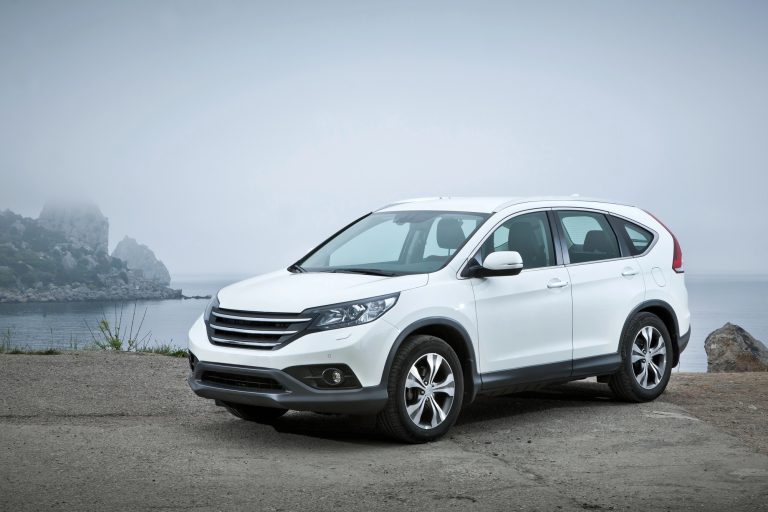
Commuting is part of everyday life for millions of people. Whether you’re driving to work, school, or simply navigating your daily routine, your car plays a central role in how smooth (or stressful) that experience feels. While no single car is the best fit for everyone, there are several important factors to consider when you’re trying to find the best commuter car for you.
In this guide, we’ll explore the key aspects to think about when shopping for a commuter vehicle, so you can make a decision that matches your lifestyle, budget, and preferences.
1. Fuel Efficiency
One of the top considerations for any commuter car is fuel efficiency. If you’re spending a lot of time on the road each week, miles per gallon (MPG) can directly impact your wallet. Cars with better fuel efficiency generally cost less to run, making them appealing for daily drivers.
Some people may lean toward hybrids or fully electric vehicles (EVs) for their impressive efficiency numbers. However, many compact gas-powered cars still deliver excellent mileage without requiring a charging station.
Things to consider:
- How long is your daily commute?
- Do you have easy access to EV charging?
- Are you okay with a slightly smaller vehicle to save on fuel?
2. Reliability
When you’re driving a car every day, dependability becomes a huge factor. A commuter car should be something you can count on in all weather conditions and traffic scenarios. While breakdowns and repairs are always a possibility with any car, choosing a brand or model known for long-term reliability can offer peace of mind.
It might be helpful to look at owner reviews, recall history, and reliability ratings from sources like Consumer Reports or J.D. Power. These can provide insight into how a car tends to hold up over time.
3. Comfort and Ergonomics
Even a short commute can feel much longer in an uncomfortable car. Features like supportive seats, quiet cabins, and easy-to-use controls can make a big difference when you’re behind the wheel every day. If you have a longer drive, this becomes even more important.
Interior comfort factors to explore:
- Seat cushioning and lumbar support
- Legroom and headroom (especially for taller drivers)
- Noise insulation
- Infotainment system usability
Take the time to test-drive any car you’re considering to see how it feels. What looks great on paper may not be the right fit once you’re inside.

4. Cost of Ownership
The purchase price is just one part of the puzzle. Your total cost of ownership also includes:
- Insurance premiums
- Fuel or charging costs
- Maintenance and repairs
- Depreciation
Some cars may cost more upfront but offer lower long-term expenses due to better fuel economy or higher resale value. Others might be affordable to buy but rack up costs over time. Doing some research into long-term maintenance schedules and insurance estimates can help you plan accordingly.
5. Safety Features
Daily commuting can include everything from bumper-to-bumper traffic to high-speed highway driving. That’s why safety is another key component when choosing a commuter vehicle.
Modern safety technology has come a long way, and many newer models—even on the more affordable end—come equipped with features like:
- Forward collision warning
- Lane departure alert
- Adaptive cruise control
- Blind-spot monitoring
- Automatic emergency braking

6. Size and Maneuverability
When it comes to commuting, smaller vehicles often win points for their ease of use. Compact cars and small crossovers can make city driving, parking, and navigating traffic far less stressful. However, if you carry a lot of gear or carpool frequently, you may need the extra room that a midsize sedan or SUV offers.
There’s no one-size-fits-all answer—it depends on your needs.
Ask yourself:
- Do you need lots of cargo space?
- How tight are the streets or parking spots in your area?
- Are you comfortable with larger vehicles?
If you’re purchasing a used vehicle, it’s still possible to find many of these features, but you’ll need to double-check the trim levels and options available.
7. Technology and Connectivity
While not a deal-breaker for everyone, having up-to-date technology in your car can enhance your commute. Features like Apple CarPlay, Android Auto, voice commands, and built-in navigation can keep you connected and entertained without taking your hands off the wheel.
Other tech conveniences to look for:
- USB ports for device charging
- Wireless charging pads
- Bluetooth connectivity
- Touchscreen controls with responsive interfaces
Not all technology is created equal, though. A sleek interface on one model might be clunky or unintuitive on another, so it’s worth trying it out during a test drive.
8. Environmental Impact
More drivers are also thinking about the environmental impact of their daily commute. Choosing a fuel-efficient or low-emissions vehicle can be a personal decision rooted in environmental values or simply a way to save on fuel and qualify for government incentives.
Hybrids and EVs are common go-to choices, but even newer gas vehicles with smaller engines or turbocharged systems can offer reduced emissions and improved efficiency.
9. Budget and Financing Options
Your budget will ultimately shape what cars you consider. Whether you’re buying new or used, financing or leasing, it’s essential to have a clear picture of what you can afford both monthly and over the lifespan of the car.
Here are some tips:
- Explore certified pre-owned options for more value
- Compare loan or lease terms from multiple lenders
- Factor in taxes, registration, and dealer fees
- Don’t forget to leave room in your budget for regular maintenance
10. Lifestyle Fit
Finally, your ideal commuter car should fit your overall lifestyle. If you also use your car for weekend getaways, transporting kids, or hauling sports gear, it needs to handle more than just the drive to and from work.
Think about your full range of driving needs, not just your 9-to-5 commute, and try to choose a vehicle that can adapt accordingly.
Your Commute, Your Choice
There’s no single best commuter car for everyone, but there is likely one that’s best for you. By focusing on the key factors like fuel efficiency, reliability, comfort, and cost, you can narrow down your options and find a vehicle that makes your daily drive easier and more enjoyable.
Start by evaluating your driving habits and needs. Then, test-drive a few different models and see what fits best. With a little planning and research, your perfect commuter car may be just around the corner.
